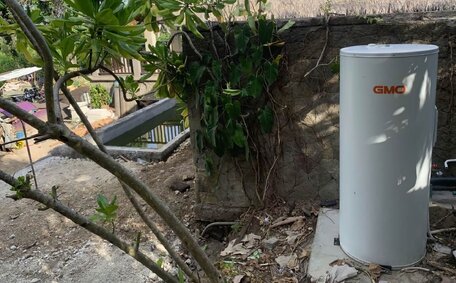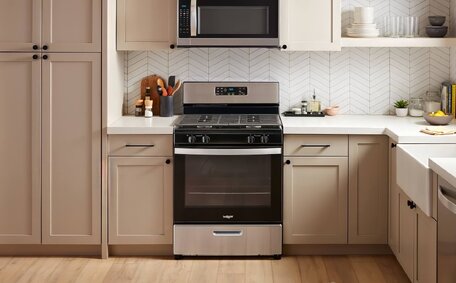
Financial Benefits of Natural Gas
Natural gas offers many financial perks over other energy sources. It burns cleaner and costs less than alternatives, helping lower monthly bills.
Read MoreNatural gas and propane are widely used in Australian homes and businesses for heating, cooking, and powering appliances. Though they share some similar combustion properties, there are several key differences when it comes to their chemical makeup, energy efficiency, cost, safety considerations, and storage methods.
Natural gas, primarily methane, is distributed through extensive pipelines, while propane, a derivative of natural gas processing and crude oil refining, is housed in portable tanks.
Although natural gas delivers more energy per unit volume, propane’s portability makes it suitable for areas without pipeline access.
While natural gas is generally more cost-effective per British Thermal Unit (BTU), propane’s transportability can balance out infrastructure costs in certain situations. From an environmental standpoint, both are considered cleanburning fuels, though leaks of methane-rich natural gas can have an outsized climate impact if not addressed.
For safety, both fuels have odorants added to help detect leaks, which demand prompt action because of the explosion risk and carbon monoxide poisoning potential. Tank storage and piping system maintenance are critical for preventing hazardous propane and natural gas incidents.
As we dive deeper into comparing natural gas versus propane, we’ll explore how these aspects differentiate the two fuels in order to illuminate the advantages and limitations of each energy source.
Chemically speaking, natural gas principally consists of methane (CH4), representing typically 70-90% of its formulation, reflecting its core ingredient. It also contains other hydrocarbon gases like ethane, propane and butane in smaller amounts.
Propane, on the other hand, is a by-product of natural gas processing and petroleum refining. Its chemical formula is C3H8, meaning each molecule contains 3 carbon atoms and 8 hydrogen atoms.
Propane is denser in energy than natural gas, with one cubic foot yielding about 2,500 BTUs of heat, compared to 1,000 BTUs from a similar volume of natural gas.
This makes propane natural about 2.5 times more efficient on an energy-per-volume basis. It means a smaller volume of propane is required to produce the same amount of heat output. This much higher energy concentration per cubic foot is a principle reason propane is extensively utilised for heating, cooking, and electricity production demands in diverse environments, from homes to industrial venues.
When examining environmental impacts, a key difference lies in the methane content of natural gas versus propane. Given methane’s high global warming potential, leaks from compressed natural gas (CNG) systems and appliances can substantially contribute to climate change.
Propane, on the other hand, does not contain methane as natural gas does. As the cleanest burning fossil fuel, its combustion releases less carbon dioxide and fewer particulates than other hydrocarbon energy sources. If properly handled, propane poses little risk of soil or groundwater contamination.
For the community of Balmain in Sydney, methane leaks are a definite environmental concern to consider regarding large-scale natural gas usage. For the community of Balmain in Sydney, methane leaks are a definite environmental concern to consider regarding large-scale natural gas usage. Propane can offer a less hazardous and lower-emission solution in areas not connected to gas lines.
A major difference between propane and natural gas lies in the infrastructure required for delivery. Natural gas is transported via an extensive network of pipelines directly to homes and businesses. To receive natural gas service, buildings need to be located within the vicinity of gas distribution lines and equipped with inlet pipes.
Propane, on the other hand, does not rely on pipelines for distribution. It is delivered by tanker trucks and stored onsite in pressurised cylinders or bulk tanks. This portability means propane can be used for heating, cooking, and other applications in rural or remote areas lacking pipeline access.
Installing a dedicated gas piping network can be costly if your property lacks an existing utility connection.
However, for propane, the main installation necessities are that it can stored with proper onsite storage capacity, safety measures, and interior piping to supply the necessary amount of energy to appliances. The flexibility and independence of propane storage can make up for higher per-unit fuel expenses in some off-grid or rural settings.
Both natural gas and propane are efficient and reliable for heating, cooking, or powering devices, yet they have distinct infrastructure and distribution needs that influence their suitability for different applications.
When it comes to storage and transportation, there are significant differences between natural gas and propane. Recognised widely as a gas nonrenewable, natural gas cng is channelled from extraction sites and refining facilities to end-users nearly solely through pipeline networks. These pipelines traverse subterranean routes, conducing gas at elevated pressures directly to residential quarters, commercial entities, manufacturers, power stations, and measurable in cubic meters for other utilitarian purposes.
In contrast, propane is stored and transported in specially designed pressurised tanks, traditionally in a liquid state. It is then delivered to the end user location and transferred into onsite storage tanks.
Residential propane tanks, varying from 20 to roughly 4,000 litres, are regularly refilled by delivery services.
Larger commercial tanks exist for sizeable facilities. Safety features like pressure relief valves are necessary. Propane tanks require significantly less space than something comparable for storing natural gas onsite.
Propane regulations concentrate on the design, construction, inspection, and placement of storage tanks to minimise risk at storage sites.
Compliance ensures proper pressurisation levels are maintained. Environmental impact avoidance also governs placement and leak monitoring rules.
Ultimately both natural gas and propane offer efficiency and reliability as fuel sources. But the former depends on costly pipeline infrastructure while the latter’s portability allows onsite storage in even remote locations. This provides users not on existing gas lines the ability to use propane tanks for their energy requirements.
When considering cost, the difference between natural gas propane is notable, with natural gas tending to be more affordable for residential and commercial consumers on a per unit energy basis. Based on current tariff rates, natural gas costs approximately $28 per gigajoule (GJ) for homes in the Balmain area. Propane is more expensive at around $40 per GJ.
Several variables impact the pricing of both fuels. For natural gas, costs relate to exploration, production, interstate transmission via pipelines, local storage, and distribution expenditures. Seasonal heating demand in winter also strains supply, raising prices.
Larger commercial and industrial propane tank installations can also offset heightened energy unit costs through bulk supply deals.
Ultimately natural gas furnishes an affordable way to heat Balmain homes and businesses connected to existing gas lines. However, propane is a viable and competitive alternative for adding or retrofitting appliances in locations without pipeline access. Weighing usage needs and infrastructure costs helps determine whether propane’s portability warrants the marginally higher price tag.
While both fuels are hazardous if leaks are neglected, the properties of propane make it particularly dangerous. As propane vapour is heavier than air, leaks tend to accumulate in low spots, creating explosion risks in confined spaces. Both fuels have odorants added to aid leak detection.
Homeowners using natural gas are advised to conduct regular inspections of pipes and appliances for any leaks. If a leak is suspected, evacuate the area and contact the gas company or emergency services immediately. Any outdoor gas smells should also prompt urgent action.
With propane, routinely checking storage tanks, valves, and supply lines for damage or leaks is critical. If a leak is noticed, evacuate and call the fire brigade straight away. Turning off the tank valve and not restarting appliances until the leak is repaired by a professional is vital.
'Sniff’ tests can be utilised to detect gas leaks.
Compliance with safety codes for natural gas and propane storage and handling is also crucial in safeguarding Balmain residents. Consumers must also do their part in monitoring systems for leaks, acting decisively if dangers arise. Knowing the protocols for responding to propane or natural gas leaks helps minimise catastrophe risks.
When choosing appliances for your Balmain residence or business, ensure you select models designed for natural gas or propane, as appropriate. Appliances specifically manufactured for natural gas utilise burners and valves calibrated for that fuel’s particular properties.
Propane appliances contain components suited for the pressurised nature of LP gas tanks. Using the incorrect fuel type can severely impact efficiency and pose safety risks from issues like incomplete combustion or gas buildup and leaks.
For homeowners, typical considerations include whether their property already has natural gas connections or relies on propane tanks, as well as the availability and cost of each energy source. New developments may furnish natural gas lines, while converting old appliances in established homes often makes sense sticking with LPG for continuity.
Commercial operators weigh factors like existing onsite infrastructure versus long-term operating costs. Kitchen equipment in the restaurant industry, backup generators, and heating systems all need to factor in compatibility. Strict Safety is guaranteed through adherence to local building codes and permit requirements.
In short, Balmain residents must confirm fuel compatibility when selecting natural gas or propane-powered appliances. Consulting qualified technicians helps appropriately match equipment to lifestyle needs and energy infrastructure.
Choosing between propane and natural gas for your home or business involves several important considerations:
Ultimately, for properties with existing gas lines, natural gas is a cost-effective and efficient choice. Consider your needs in Balmain or greater Sydney, from home heating, cooking to commercial use cases. Seek professional advice from reputable local providers such as Balmain Plumbing to choose appliances that best suit your lifestyle, consumption habits, and infrastructure.
Propane, conversely, offers versatility and portability.
Natural gas offers many financial perks over other energy sources. It burns cleaner and costs less than alternatives, helping lower monthly bills.
Read MoreChoosing the correct hot water system size involves considering factors like number of household members, number of bathrooms, peak usage times and daily hot water needs per person. Our guide helps determine the right system capacity.
Read MoreHaving trouble with your gas water heater not heating properly? The pilot light may have gone out. Follow our clear guide on relighting your gas water heater’s pilot light in 6 easy steps. Or call the friendly experts at Balmain Plumbing if you need assistance relighting your pilot.
Read MoreBalmain, 2041 NSW
We will call back as soon as possible.




